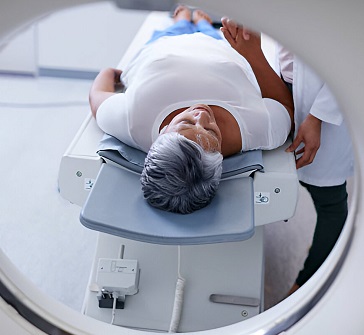 Book Appt.
Book Appt.
 Call Now
Call Now


Bladder Cancer ranks 10th on the list of the most common cancers worldwide. The risks are higher in males as compared to females with the lifetime incidence being 1 in 28 for the former and 1 in 91 for the latter. Nearly 9 out of 10 people who are diagnosed with bladder cancer are above 55 years of age and the median age of diagnosis is 73. Bladder Cancer is not common among children and has an incidence rate as low as 0.1 to 0.4 percent in people before 20 years of age.
What is Bladder Cancer?
Bladder Cancer is a malignancy that develops within the urinary bladder and is marked by the uncontrolled growth of abnormal bladder cells. It can be of several different types depending on the cells from which it develops. Most of these are very aggressive and can be muscle invasive. Small cell carcinoma of the bladder is the most aggressive form whereas urothelial carcinoma or transitional cell carcinoma is the most common type.
What are the symptoms of Bladder Cancer?
Common symptoms that may point towards the possibility of one having Bladder Cancer include:
When should you see a Specialist?
It is advisable to see a specialist as soon as you detect any of the above-mentioned symptoms. All these just point towards the possibility of you having bladder cancer but are not definitive. In order to confirm whether a patient has bladder cancer or not, doctors perform some physical examinations and tests. The sooner you consult a specialist, the quicker you will be diagnosed leading to better treatment outcomes.
What causes Bladder Cancer?
Bladder Cancer is the result of certain DNA mutations that lead to the uncontrolled multiplication of malignant cells. The exact cause of this cannot be pin-pointed, however, it has been closely linked with certain risk factors, which include:
Modalities used for the diagnosis of Bladder Cancer
Treatment options available for Bladder Cancer
SHALBY Sanar International Hospitals provides extensive medical procedures backed up with our state-of-the-art technology and a team of highly qualified & experienced clinical experts.

Grade 2 Endometrium Cancer | Ms. Robiyakhon | Uzbekistan | Dr. Archit Pandit | SHALBY Sanar

Male Breast Cancer Recovery Story | Dr. Archit Pandit | Cameroon | SHALBY Sanar

Ms. Nafisa’s Inspiring Breast Cancer Recovery | Dr. Archit Pandit | Uzbekistan | SHALBY Sanar International Hospitals

Stage4 colon cancer is curable - Colon cancer with liver metastasis | Kenya | Dr Archit Pandit

Patient from Kenya Treated by Dr. Archit Pandit | SHALBY Sanar International Hospitals

Double Cancer Victory: Mrs. Salma Kapoor's Inspiring Recovery Story | Dr. Archit Pandit

Patient from Uzbekistan Treated by Dr. Archit Pandit | SHALBY Sanar International Hospitals

Patient from Uzbekistan Treated by Dr. Archit Pandit | SHALBY Sanar International Hospitals

Successful Carcinoma Buccal Mucosa Surgery of a Patient from Nigeria by Dr. Archit Pandit

Successful Colon Cancer Surgery of Mr. Faraidun Kaka Bra Amin Amin's from Iraq | Dr Archit Pandit

Miraculous Recovery of a patient from Uzbekistan battling Ovarian Cancer | Dr. Archit Pandit

Successful Cancer Detection & Surgery by Dr. Archit Pandit | SHALBY SHALBY Sanar International Hospitals

Successful Colon Cancer Treatment of a patient from Iraq by Dr Archit Pandit | Surgical Oncology

Successful Glottis Mass & Carcinoma Vocal Cord Treatment of a patient from Iraq by Dr Archit Pandit

Successful Stage 4 Colon Cancer Treatment of a patient from Kenya by Dr Archit Pandit

Surviving the Odds: 56-Year-Old's Journey with Recurrent Carcinoma Vocal Cord | Dr. Archit Pandit

Surviving Recto-Sigmoid Cancer: Mr. Syamand Ahmed's Inspiring Journey

Success Story: Iraqi Patient's Liver Tumour Treatment at SHALBY Sanar International Hospitals

Cytoreductive Surgery Success: Iraqi Patient's 30cm Ovarian Tumor Removed Safely

Beating Liver Cancer: Mr. Abdirashid's Inspiring Story

Ms. Nejood's Success Over Pancreatic Cancer: A Remarkable Journey

Transforming Smiles: Revolutionary Buccal Commando Procedure

Wide Local Excision Surgery & Microvascular Reconstruction of a Cancer patient

Successful Surgery of Esophgeal Cancer

Successful Lung Cancer Surgery of Ms. Jerioth Wanjiru from Kenya

Para Thyroidectomy on Pt Jawad Kadhim Tweli from Iraq

Dr Archit Pandit discusses the fascinating case of Geeta Rani
Our doctors pen down their research findings and experiences from time to time. Their words provide deep insight into the latest techniques, technologies and other advancements in healthcare. It provides expert answers to all kinds of health questions for real-life issues.
VIEW ALL




Since the day of its foundation, SHALBY Sanar International Hospitals is committed to provide comprehensive healthcare services. It regularly organizes awareness programs in its premises and encourages outdoor healthcare activities and camps with an intent to put focus on preventive healthcare.
VIEW ALL